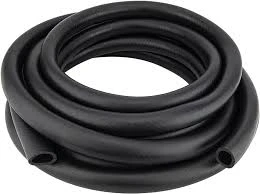oil transfer hose
Sep . 25, 2024 17:46 Back to list
oil transfer hose
The Importance of Oil Transfer Hose in Modern Industries
Oil transfer hoses are essential components in various industries, playing a pivotal role in the safe and efficient transportation of crude oil, refined petroleum products, and other hazardous materials. These specialized hoses are designed to withstand the rigorous demands of high-pressure environments while ensuring that the transfer of oil and other fluids is carried out smoothly and safely.
Key Features of Oil Transfer Hoses
The construction of oil transfer hoses is meticulously engineered to meet industry standards. They are made from durable materials that provide resistance to oil, chemicals, and extreme temperatures, ensuring that they can handle the specific fluids they are designed for. Common materials used in the manufacturing of these hoses include rubber, PVC, and various composite materials, which are chosen for their flexibility, durability, and resistance to abrasion.
Additionally, oil transfer hoses often feature internal reinforcements, such as spiral or braided steel wires, to enhance their strength and prevent bursting under high pressure. The outer layer typically has protective properties to resist weathering and other environmental factors. These features are crucial for preventing leaks, which can lead to severe environmental hazards and costly fines for companies.
Applications Across Industries
Oil transfer hoses are utilized across various industries, including oil and gas, chemical processing, construction, and maritime transportation. In the oil and gas sector, these hoses are vital for transferring crude oil from extraction sites to refineries, as well as transmitting refined products to distribution points. Their flexibility and resilience allow for safe operation in both onshore and offshore environments, which are often challenging.
In the chemical processing industry, oil transfer hoses are used to move hazardous chemicals. The ability of these hoses to resist corrosive substances is critical for maintaining safety and preventing environmental contamination. In construction, they are employed for transferring fuel to heavy machinery, ensuring that operations run smoothly without downtime due to fuel shortages.
Moreover, in maritime applications, specialized oil transfer hoses are crucial for ship-to-shore transfers
. The flexibility of these hoses allows for movement on the deck of a ship, accommodating waves and swells, while ensuring that fuel and other liquids are transferred safely without spills.oil transfer hose

Safety Considerations
Safety is a paramount concern when dealing with oil transfer hoses. They must comply with rigorous industry standards such as those set by the American Petroleum Institute (API) and the guidelines from the Occupational Safety and Health Administration (OSHA). Regular inspections are essential to check for wear, tear, and potential leaks. Companies often implement preventive maintenance programs to detect issues before they lead to failures, which could result in catastrophic accidents or environmental disasters.
The importance of proper training cannot be overstated. Personnel handling oil transfer operations must be well-trained in the correct use of hoses and emergency procedures in case of leaks or spills. Understanding the specific requirements for each type of oil transfer hose is essential to ensure safety and efficiency.
Innovations in Oil Transfer Hoses
As technology advances, so too do the designs and materials used in oil transfer hoses. Innovations such as smart hoses, equipped with sensors to monitor pressure, temperature, and fluid composition, are emerging in the market. These smart hoses provide real-time data, helping companies to predict potential failures and optimize their operations.
Furthermore, advancements in materials science are leading to the development of hoses that are lighter yet stronger, enhancing operational efficiency and reducing costs in the long run.
Conclusion
In conclusion, oil transfer hoses play an indispensable role in the operations of various industries, ensuring the safe and efficient transfer of liquids. With a focus on safety, technological advancements, and adherence to industry standards, these hoses will continue to evolve, meeting the ever-increasing demands of modern industrial applications. The careful selection and maintenance of oil transfer hoses are critical for protecting both the environment and the integrity of operations, making them a vital component in the infrastructure of the oil and gas sector and beyond.
